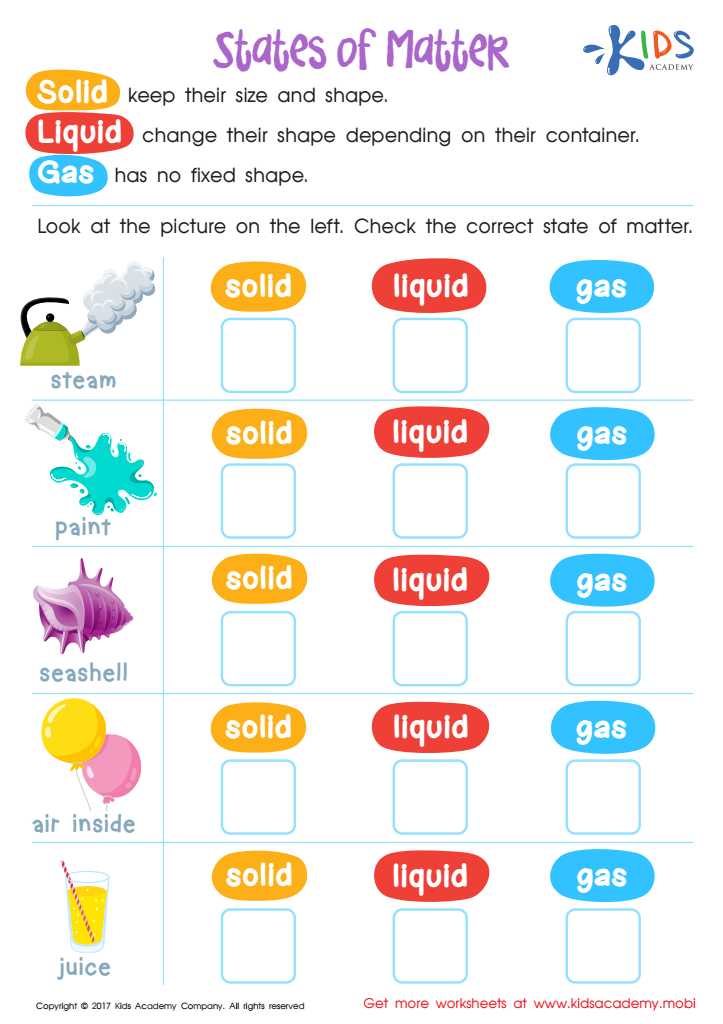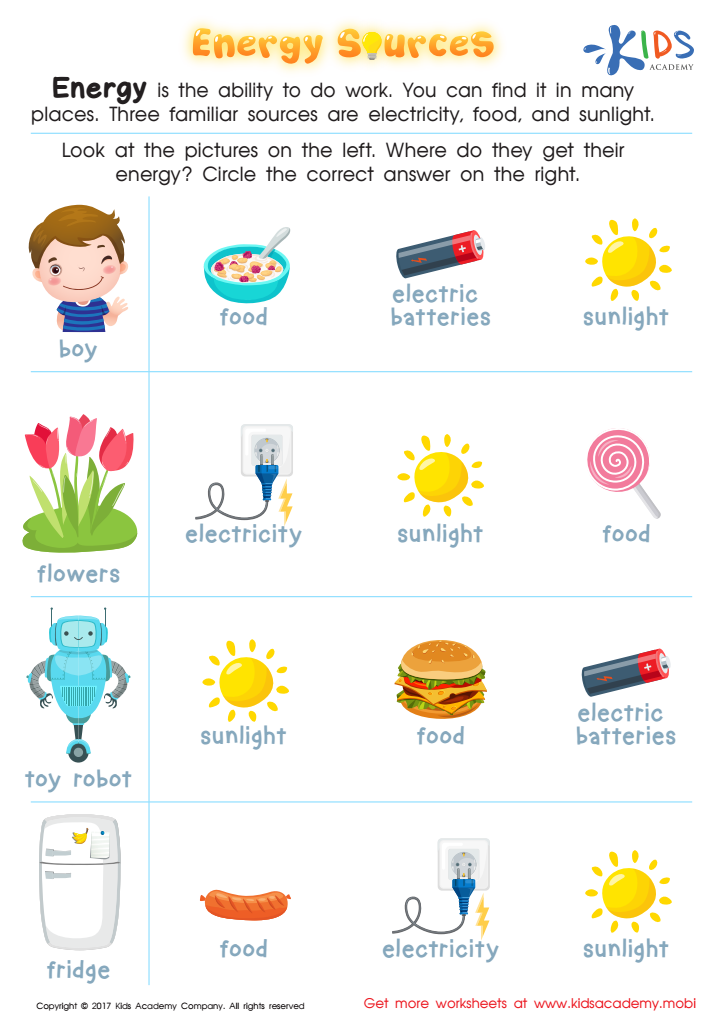Normal Physical Science Worksheets for Ages 3-9
3 filtered results
-
From - To
Discover a world of discovery with our Normal Physical Science Worksheets designed for children aged 3-9! These engaging and interactive worksheets introduce young learners to fundamental concepts of physical science through fun activities tailored to their developmental level. From exploring the properties of matter to understanding basic forces and motion, our resources make learning enjoyable and accessible. Each worksheet encourages curiosity and critical thinking while fostering a love for science. Perfect for home or classroom use, these worksheets provide a valuable tool for hands-on learning experiences. Ignite your child's interest in the world around them with our expertly crafted physical science activities!


Physical Science: States of Matter Worksheet


Sink or Float Printable


Energy Sources Printable
Parents and teachers should prioritize Normal Physical Science for children aged 3-9 because it lays the foundation for critical thinking, curiosity, and a love for learning. This stage of cognitive development is ideal for introducing fundamental concepts of how the world works, as children are naturally inquisitive and eager to explore. By engaging children in hands-on experiments and observational activities, we can ignite their imagination and foster a scientific mindset.
Understanding basic physical science concepts—such as properties of materials, motion, and the effects of forces—fuels children's enthusiasm for discovery and helps them make sense of their environment. It encourages observational skills and enhances problem-solving abilities that are crucial in everyday situations.
Additionally, a strong grounding in physical science can inspire future interest in STEM (science, technology, engineering, and mathematics) careers. Early exposure can guide children toward careers in technology and innovation, which are vital for a rapidly advancing society. Moreover, engaging in science promotes not only cognitive growth but also social skills as children collaborate and communicate their findings with peers. In short, incorporating Normal Physical Science into early education nurtures inquisitive learners and prepares them for a world fueled by scientific understanding.

 Assign to My Students
Assign to My Students




















